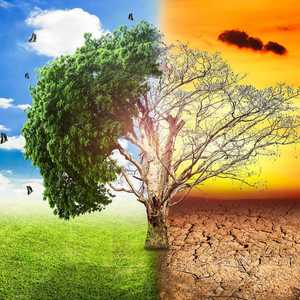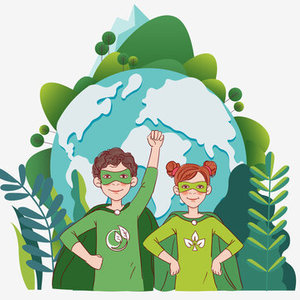Priyadarshini Ramaswamy
"On the journey to provide a pollution free and an organic environment to the future generation"
POINTS TOTAL
- 0 TODAY
- 0 THIS WEEK
- 1,171 TOTAL
participant impact
-
UP TO7.1poundsfood waste prevented
-
UP TO17pounds of CO2have been saved
-
UP TO1.0waste auditconducted
-
UP TO37single-use bagsnot sent to the landfill
-
UP TO357gallons of waterhave been saved
-
UP TO2.0community eventshosted or attended
-
UP TO0.0advocacy actionscompleted
-
UP TO1.0treeplanted
-
UP TO479minutesspent learning
Priyadarshini's actions
Land + Forests
Personal Waste Audit
The waste we create daily can go unnoticed. I will track the waste I create in a day and post a photo log on the feed to see how much I create and where I can make different choices to reduce my waste going forward.
Land + Forests
Zero Waste Day
The impacts of our waste are far reaching. I will create zero waste for an entire day and share my reflections and learnings on the feed.
Freshwater + Oceans
Smart Seafood Choices
We need to support healthy seafood populations. I will spend 20 minutes learning about sustainable seafood choices, commit to making better seafood choices for a healthier ocean, and share what I learned on the feed.
Freshwater + Oceans
Low Water Gardening
Grass lawns are water-intensive and on average require about 30 percent of a household’s water consumption. Native plants are water-efficient and help maintain the balance and diversity of local ecosystems. I will plant native species with water-efficient plants to conserve water and improve the habitat, then post a photo on the feed to share.
Freshwater + Oceans
Reduce Pollutants in Cleaning
Understanding cleaning product ingredients and their effect on water and biodiversity is helpful to our consumer choices. I will spend 35 minutes learning about how cleaning products affect our water and try making my own cleaning products to reduce pollutants.
Freshwater + Oceans
Raise Awareness for the Conservation of Freshwater and Oceans
I will spend 30 minutes learning more about the importance of freshwater + ocean conservation, and how I can reduce my water use. I will share what I learn with people in person, on social media, and on the feed.
Freshwater + Oceans
Join a Cleanup Effort
I will organize or participate in a trash pickup at a local river, beach, or natural body of water.
Biodiversity + Wildlife
Save the Bees
Bees are vital to ecosystems. To help save the bees, I will learn which local flowers provide nectar and plant them in my backyard or in a pot on my balcony.
Biodiversity + Wildlife
Plastic in Clothing and Water
Synthetic clothing can contain plastic and shed harmful microplastics into our water. I will use a microplastics catcher in my laundry, or install a microplastics filter for my washing machine.
Action Track: Community
Borrow Before I Buy
Why buy something I will only use once or a few times if someone nearby has it for me to borrow, and why not share something I have that someone may only need a few times a year? To reduce my consumption and waste, I will create or support the sharing economy with friends, family, colleagues or neighbors.
Action Track: Community
Plant Trees
Trees capture carbon and produce oxygen that is essential to life on earth. I will support this important piece of nature by organizing or joining a community group to plant 2 native trees in my community, public parks, office location, campus or backyard.
Climate + Air
Consume only Needs vs Wants
The more stuff we consume, the more greenhouse gasses we put into the atmosphere. I will adopt a "Needs Vs. Wants" approach this month and only buy things I need.
Climate + Air
Weekly Meal Planning
One third of all food produced worldwide is wasted, and so is the energy it takes to produce and transport that food. I will reduce food waste and save money by planning a weekly menu, only buying the ingredients I need and eating what I planned each day.
Climate + Air
Stay on the Ground
Carbon emissions from air travel is harmful to planetary and human health. Instead of traveling by plane, I will find an alternative way to accomplish the goals of an upcoming trip (i.e. telepresence, vacation locally).
Climate + Air
Low Carbon Diet
Carbon is emitted into the atmosphere in a variety of ways, including through the foods we eat and food we waste. I will learn about low carbon foods and replace higher carbon foods with them in my diet.
Climate + Air
Sustainability Lunch and Learn
Learning in a social setting can inspire connection and change. I will work with a friend or colleague to plan and host a lunch and learn at work, school, in my neighborhood or other location to learn more about an environmental topic important to me. After the lunch and learn, I will share more about it on the feed.
Biodiversity + Wildlife
Endangered Species
Wildlife and biodiversity play an important role on our planet and are being threatened each year. I will spend 60 minutes each day learning about the current status of local or global wildlife and how I can align my actions to support their livelihood.
Biodiversity + Wildlife
Leave No Trace
I will respect and protect biotic communities by practicing the seven principles of Leave No Trace whenever I am outside.
Biodiversity + Wildlife
Use Reusable Bags
Plastic bags can be mistaken for food by many wild animals and can end up in habitats that harm wildlife. I will not accept any disposable bags when making purchases, including produce bags.
Biodiversity + Wildlife
Invest in Nature
A healthy world needs both our daily actions and support from larger systems. I will spend 30 minutes learning about how I can use my investments and savings to advance environmental sustainability.
Biodiversity + Wildlife
Beauty and Personal Products
Beauty and personal products can create a lot of waste. I will spend 30 minutes learning about the beauty and body products I use to see if they are refillable or recyclable. If not, I will reach out to the manufacturer to advocate for those options.
Action Track: Community
JOIN OR CREATE A GREEN TEAM AT EMERSON
I will continue to contribute to Emerson's environmental sustainability goals beyond April by learning more about the Global Green Teams Network, joining a team near me, or maybe even creating a new team.
Action Track: Community
SIGN UP TO RECEIVE NEWS ON SUSTAINABILITY AT EMERSON
I will sign up to the Sustainability Aficionados distribution list to receive global news on sustainability at Emerson, including world news and Greening OF, BY, and WITH news.
Action Track: Community
TAKE PICTURES AND SHARE ON LINKEDIN
I will take at least one photograph that is connected with this year's theme of Nature Conservation & Biodiversity (for example an urban park, bee hives, birds and other animals...) and I will post it on LinkedIn with the hashtags #EarthMonthEcochallenge #EarthMonthAtEmerson.
Action Track: Community
ATTEND THE ECOCHALLENGE CONSERVATION WEBINAR
On Wed 24th April, I will attend the Earth Month Ecochallenge Webinar on Conservation to learn about what individuals, companies and other organizations can do to promote biodiversity and nature protection.
Participant Feed
Reflection, encouragement, and relationship building are all important aspects of getting a new habit to stick.
Share thoughts, encourage others, and reinforce positive new habits on the Feed.
To get started, share “your why.” Why did you join the challenge and choose the actions you did?
-
 Priyadarshini Ramaswamy 4/23/2024 9:29 PM
Priyadarshini Ramaswamy 4/23/2024 9:29 PM-
 Hariprasad Manivannan 4/25/2024 1:13 AMGood one.
Hariprasad Manivannan 4/25/2024 1:13 AMGood one.
-
-
 Priyadarshini Ramaswamy 4/18/2024 4:43 AMGot the below information from World Wildlife Fund(WWF).The have represented the effect of climate change on living organisms over a period of time.
Priyadarshini Ramaswamy 4/18/2024 4:43 AMGot the below information from World Wildlife Fund(WWF).The have represented the effect of climate change on living organisms over a period of time.
For example warm water corals, which was formed in 1700 might disappear after 2050 as they are highly sensitive to warming. In a very low warming future - one that limits temperature rise to 1.5ºC - the IPCC projects a loss of 70% of warm water corals. Beyond a 2ºC increase, virtually all warm water corals disappear. We should take this Eco challenge seriously and protect the earth for our future generation.-
 Hariprasad Manivannan 4/25/2024 1:13 AMGood Info.
Hariprasad Manivannan 4/25/2024 1:13 AMGood Info. -
 Ahamed mukthar Amurdeen 4/20/2024 4:17 AMNice information
Ahamed mukthar Amurdeen 4/20/2024 4:17 AMNice information -
 Amey Jain 4/18/2024 4:52 AMWorld Wildlife Fund(WWF) is a good website to learn. Even I read about endangered species of animals on this site.
Amey Jain 4/18/2024 4:52 AMWorld Wildlife Fund(WWF) is a good website to learn. Even I read about endangered species of animals on this site.
-
-
 Priyadarshini Ramaswamy 4/16/2024 4:12 AMAnother interesting i came across on sustainability. One ton of 100 percent recycled paper saves the equivalent of 4,100 kWh of energy, 7,000 gallons of water, 60 pounds of air emissions and three cubic yards of landfill space.
Priyadarshini Ramaswamy 4/16/2024 4:12 AMAnother interesting i came across on sustainability. One ton of 100 percent recycled paper saves the equivalent of 4,100 kWh of energy, 7,000 gallons of water, 60 pounds of air emissions and three cubic yards of landfill space.-
 Anne Coudrette 4/16/2024 4:41 AMVery interesting! I never saw recycling from the energy saving point of view.
Anne Coudrette 4/16/2024 4:41 AMVery interesting! I never saw recycling from the energy saving point of view.
-
-
 Priyadarshini Ramaswamy 4/16/2024 4:10 AM
Priyadarshini Ramaswamy 4/16/2024 4:10 AM -
 Priyadarshini Ramaswamy 4/15/2024 3:04 AMHi all. Do you know! We always have indicator for the levels which we use. Likewise Nature also has some its own indicator species whenever there is a massive change in the environment. Here I would like to highlight one such species, Northern spotted owls . Scientists look to them to get a sense of the overall health of old-growth forest ecosystems and to monitor the effects of human-caused habitat changes. Native to the Pacific Northwest, the owls make their nests in old tree cavities, broken treetops, and abandoned raptor nests, all found in the region’s old-growth forests. But as forests have been cleared for logging, agriculture, and urban development, the owls have lost their nesting sites, and their populations have plummeted. They continue to decline by an average of almost 4 percent each year.
Priyadarshini Ramaswamy 4/15/2024 3:04 AMHi all. Do you know! We always have indicator for the levels which we use. Likewise Nature also has some its own indicator species whenever there is a massive change in the environment. Here I would like to highlight one such species, Northern spotted owls . Scientists look to them to get a sense of the overall health of old-growth forest ecosystems and to monitor the effects of human-caused habitat changes. Native to the Pacific Northwest, the owls make their nests in old tree cavities, broken treetops, and abandoned raptor nests, all found in the region’s old-growth forests. But as forests have been cleared for logging, agriculture, and urban development, the owls have lost their nesting sites, and their populations have plummeted. They continue to decline by an average of almost 4 percent each year.
Their decline signals that other species in the forest are likely declining as well and that the forest—and the web of life that sustains it—have been degraded.
-
 Priyadarshini Ramaswamy 4/11/2024 2:31 AMIn summer, Try planting plants.Flowers provide resources for pollinators, like bees. We rely on these insects for agricultural production. About 35% of the world’s crops depend on pollinators to reproduce. You can also build a bee house to provide a safe place for them to rest. Along with helping the environment, flowers increase your curb appeal.
Priyadarshini Ramaswamy 4/11/2024 2:31 AMIn summer, Try planting plants.Flowers provide resources for pollinators, like bees. We rely on these insects for agricultural production. About 35% of the world’s crops depend on pollinators to reproduce. You can also build a bee house to provide a safe place for them to rest. Along with helping the environment, flowers increase your curb appeal.
Gardening is also an activity that’s good for your health. Consider planting some vegetables and fruits to save you a trip to the grocery store.
-
 Priyadarshini Ramaswamy 4/09/2024 12:23 AMDid you know!! About 71% of the earth is water. The oceans hold approximately 96.5% of this water and the ice caps hold about 2%. The remaining water exists in rivers, ponds, glaciers, ice caps, lakes, as water vapor and our taps, among other water bodies. Only 1% of the earth’s water is safe for human consumption.
Priyadarshini Ramaswamy 4/09/2024 12:23 AMDid you know!! About 71% of the earth is water. The oceans hold approximately 96.5% of this water and the ice caps hold about 2%. The remaining water exists in rivers, ponds, glaciers, ice caps, lakes, as water vapor and our taps, among other water bodies. Only 1% of the earth’s water is safe for human consumption. -
 Priyadarshini Ramaswamy 4/08/2024 3:30 AMToday used reusable bag to avoid single use bags
Priyadarshini Ramaswamy 4/08/2024 3:30 AMToday used reusable bag to avoid single use bags -
REFLECTION QUESTIONBiodiversity + Wildlife Save the BeesWhat did you plant for bees in your area? Please consider uploading a photo!
 Priyadarshini Ramaswamy 4/08/2024 3:27 AMPlanted Parijatham flower plant to increase the pollination rate
Priyadarshini Ramaswamy 4/08/2024 3:27 AMPlanted Parijatham flower plant to increase the pollination rate-
 Kayalvizhi A 4/08/2024 5:38 AMSuper 👌
Kayalvizhi A 4/08/2024 5:38 AMSuper 👌
-
-
REFLECTION QUESTIONAction Track: Community ATTEND THE ECOCHALLENGE CONSERVATION WEBINARWhat did you learn in the webinar? Did anything surprise you?
 Priyadarshini Ramaswamy 4/08/2024 2:39 AMEnvironmental conservation is becoming an effective mass movement, it is futile to expect positive growth especially in the age of digital media which holds the potential to bring a revolution to save our planet from destruction.
Priyadarshini Ramaswamy 4/08/2024 2:39 AMEnvironmental conservation is becoming an effective mass movement, it is futile to expect positive growth especially in the age of digital media which holds the potential to bring a revolution to save our planet from destruction.
The following pointers elucidate this crucial need to save the environment from further degradation:
- To reduce air, water and land pollution
- To facilitate the conservation of natural resources for our future generations
- To ensure the protection of biodiversity
- To implement sustainable development
- To restore the ecological balance
- To save our planet from harmful repercussions of global warming


